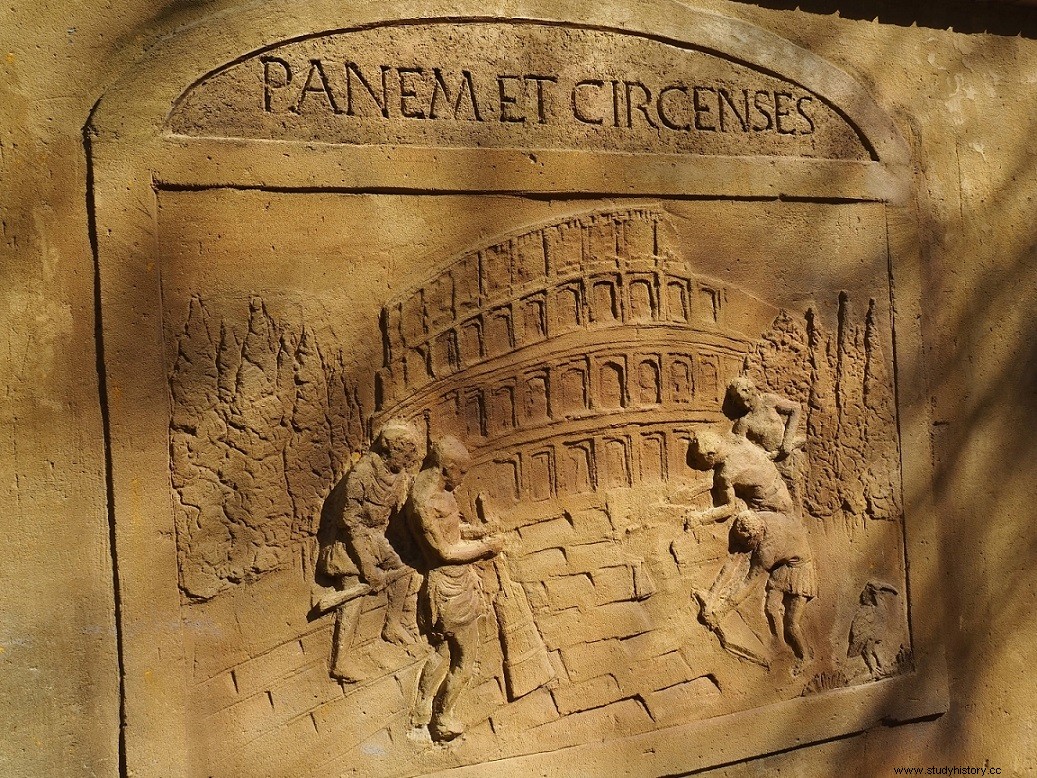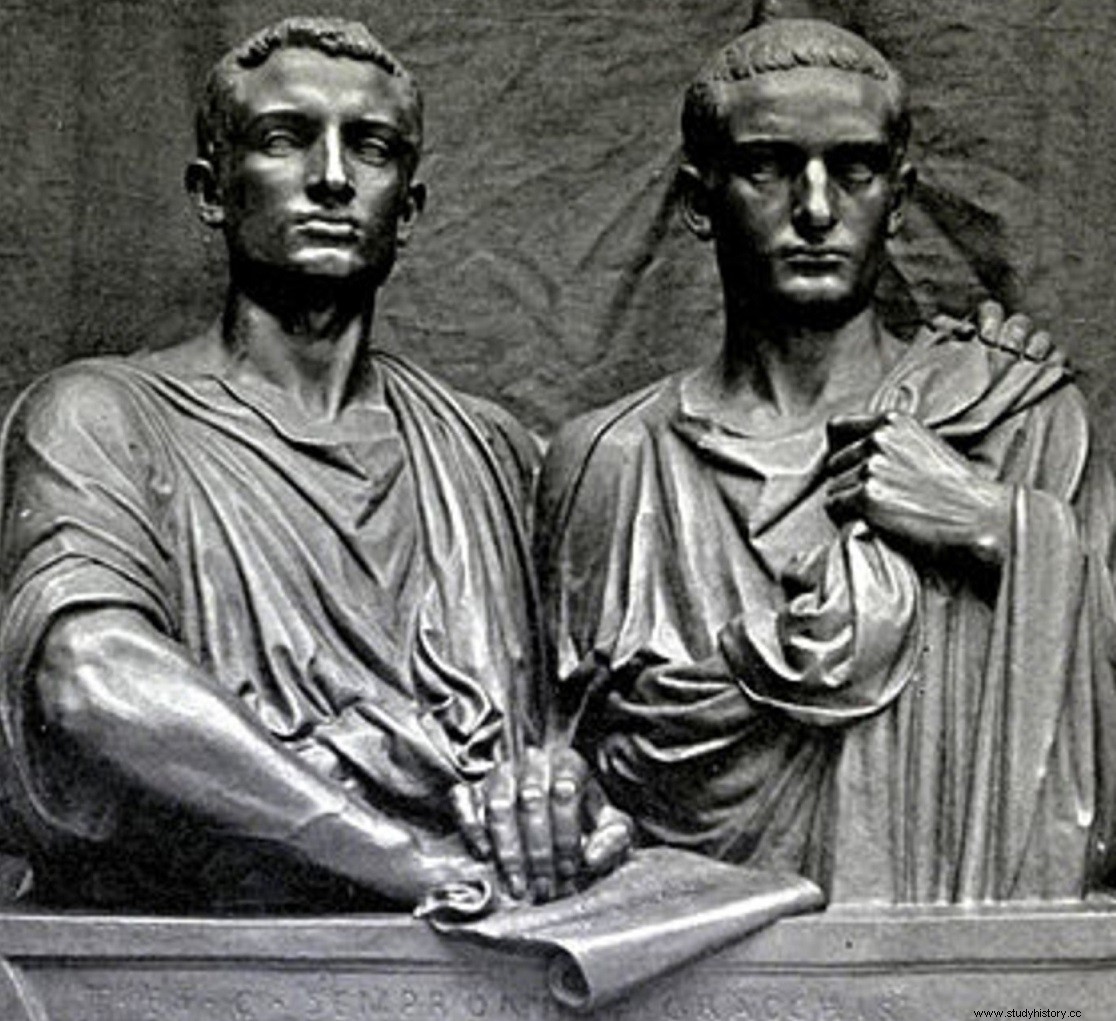Any government aspires, or should, to the so-called welfare state, implementing policies and measures that allow all citizens access to education, health, social assistance and to have their most basic needs covered. But we already know that "from saying to doing, there is a long way". In the Rome of the emperors, the welfare state could be summed up in a phrase pronounced by Juvenal in the second century:«Panem et circenses " (Bread and Circus). The emperors thought that if they had the people with a full stomach and from time to time they gave them a few days of entertainment -via fights in the arena, races in the circus or performances in the theater-, it would be enough to keep the plebs happy and that no one would question his government decisions. So, as long as the chain of happiness (distributing grain and holding shows) is not broken, everyone is happy. Of course, from time to time they passed laws of a social nature born from the mere observation of nature itself that, as things stand, we should consider recovering. One of these examples was the Lex Cionaria (Law of the Stork), by which children had the OBLIGATION to care for their elders. This law was promulgated taking the example of the storks:when they are already fend for themselves, but are still young, they lavish themselves in the care of old or disabled parents, providing them with food and protecting them. How wise nature is and how little we pay attention to it!

You can fool everyone for a time and even a few all the time, but it is impossible to fool everyone all the time. And that happened with the Graco brothers. , Tiberius and Key , who decided to break with the established system and seek something more similar to the true welfare state:return power to the people and ensure basic rights, such as work and home. The curious thing about this case is that they tried it in the second century BC. C. during the Republic, in theory a more egalitarian system of government, and, furthermore, being from an aristocratic family:sons of the consul Tiberius Gracchus and Cornelia, daughter of Scipio the African.

In addition to the logical military and political training, thanks to the efforts of their mother they were also instructed in the world of philosophy, which allowed them to have a different perspective of the world around them and of the time in which they lived. Both embarked on a journey full of dangers and with little chance of reaching a successful conclusion —a more just and egalitarian society— and, furthermore, following the most difficult path:as tribunes of the plebs, being from an aristocratic family.
The conquests of new lands and the free labor of the slaves caused the price of wheat to fall to such an extent that the small and medium farmers of Rome could not compete. Faced with this desperate situation, they were forced to sell their small farms and everything was left in the hands of a few landowners (most of them members of the Senate). Even many slaves who arrived in Rome filled the positions of the craftsmen. The Republic, an eminently agricultural society, was losing the free citizens who worked their lands and who in times of war became the base of their legions, to make them homeless or, with luck, wage earners of the landowners for a few coins. So, the change of that decadent and corrupt society went through an agrarian reform that would return power to the people and assure them a job and a home.
In 133 BC C., as tribune of the plebs, Tiberius Gracchus took to the Senate his Lex Agraria based on the prohibition of land accumulation and, above all, on the return of public land sold or leased to private individuals (ager publicus ), for the same amount paid plus a small compensation. These lands would be divided into lots and distributed among the poor citizens of Rome with the condition of not selling them and the payment of a small tribute that would go to the treasury coffers.
The animals of the field and the birds of the sky have caves and nests where they can take refuge, but the men who fight and die for Rome have only light and air. […] You fight and give your lives so that others swim in wealth and luxury. You are called the masters of the world, but you do not own even a small piece of land (Tiberius Gracchus).
Logically, the members of the Senate, in the hands of whom the majority of the ager publicus They opposed these measures. The two factions that were formed, Tiberius and the people against the Senate and the aristocracy, tried to use all kinds of political tricks to achieve their goals. Finishing his annual mandate, and seeing that his reforms were going to remain a dead letter, he decided to risk everything for everything:he presented his candidacy for a second term as tribune of the plebs (illegal by the Lex Villia Annalis promulgated in 180 a. C. that established the minimum ages required for the different magistrates and the necessary interval of ten years between two magistracies to repeat the position). On the day of the votes, Tiberius and hundreds of his supporters were beaten to death and his body thrown into the Tiber.
Despite what had happened to Tiberius, Gaius Gracchus followed the reform path taken by his brother also as tribune of the plebs in 124 BC. C. To try to overcome the obstacles that his brother had to face, in addition to the agrarian reform, he introduced a series of measures aimed at winning the favor of the richest and most powerful, such as the concession of public works and the establishment of new colonies to encourage trade. In this way, he had more travel and managed to stay in office for two consecutive terms (this time, with the favor of the powerful there were no problems with "illegality"). But when he wanted to run for his third term, everything changed. The Senate saw that he was losing power and accused Gaius of wanting to act as a dictator monopolizing power... and the clashes between supporters of one and the other returned. When he was going to be lynched, he ordered the slave Philocrates to take his life, committing suicide later.
Hardly anything changed and the two brothers died violently defending their reformist ideas against a decadent and corrupt society.
